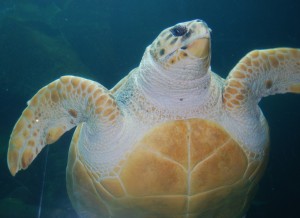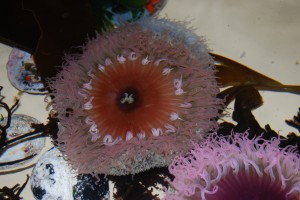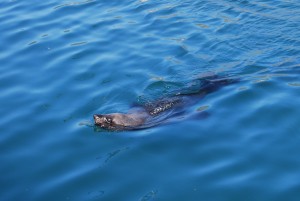On World Oceans Day, this is what you can do to help preserve the marine environment:
 • Join < environmental groups that will give voice to your particular concerns.
• Consider the environmental impact of each of your lifestyle choices.
• Do everything possible to reduce your carbon footprint.
• Try and limit your car journeys and/or join a car pool.
• Switch to cleaner technologies such as hybrid vehicles and solar energy.
• Products don’t litter, people do. Beach litter spoils beaches and finds its way into the sea to kill sea creatures. Use litterbins or take litter home with you.
• Don’t carelessly discard cigarette butts. Besides potentially starting fires they are not biodegradable as the filters are made of a type of acetate that never fully breaks down.
• The largest component of waste is organic matter. Start a compost heap.
• Plant trees to improve air quality and reduce the amount of carbon dioxide in the atmosphere, which would otherwise be taken up by the ocean, the planet's carbon sink.
• Help in the restoration of wetlands as they act as natural traps for nutrients like nitrogen, which they sponge up before it can damage aquatic systems.
• Use environmentally sensitive cleaning products, buy in bulk, use concentrates and opt for refill packs that use up to 70% less packaging material.
• Join < environmental groups that will give voice to your particular concerns.
• Consider the environmental impact of each of your lifestyle choices.
• Do everything possible to reduce your carbon footprint.
• Try and limit your car journeys and/or join a car pool.
• Switch to cleaner technologies such as hybrid vehicles and solar energy.
• Products don’t litter, people do. Beach litter spoils beaches and finds its way into the sea to kill sea creatures. Use litterbins or take litter home with you.
• Don’t carelessly discard cigarette butts. Besides potentially starting fires they are not biodegradable as the filters are made of a type of acetate that never fully breaks down.
• The largest component of waste is organic matter. Start a compost heap.
• Plant trees to improve air quality and reduce the amount of carbon dioxide in the atmosphere, which would otherwise be taken up by the ocean, the planet's carbon sink.
• Help in the restoration of wetlands as they act as natural traps for nutrients like nitrogen, which they sponge up before it can damage aquatic systems.
• Use environmentally sensitive cleaning products, buy in bulk, use concentrates and opt for refill packs that use up to 70% less packaging material.
 • Between 500 billion and a trillion plastic bags are consumed worldwide each year with less than 1% of the bags being recycled. Plastic bags are made from both high-density (HDPE) and low-density (LDPE) polyethylene, a thermoplastic made from oil that photodegrades over time breaking down into smaller, more toxic petro-polymers that eventually contaminate soils and waterways and find their way into the ocean. One cloth bag saves six plastic bags a week, 24 a month, 288 bags and year and 22 176 bags in an average lifetime. By using cloth shopping bags you will help to reduce foreign oil dependency, while reducing litter and the amount of plastic bags in our landfills. Ingested plastic causes bowel obstructions, leading to fatalities in whales, birds and sea turtles.
• Between 500 billion and a trillion plastic bags are consumed worldwide each year with less than 1% of the bags being recycled. Plastic bags are made from both high-density (HDPE) and low-density (LDPE) polyethylene, a thermoplastic made from oil that photodegrades over time breaking down into smaller, more toxic petro-polymers that eventually contaminate soils and waterways and find their way into the ocean. One cloth bag saves six plastic bags a week, 24 a month, 288 bags and year and 22 176 bags in an average lifetime. By using cloth shopping bags you will help to reduce foreign oil dependency, while reducing litter and the amount of plastic bags in our landfills. Ingested plastic causes bowel obstructions, leading to fatalities in whales, birds and sea turtles.
• 35% of the world’s food ends up in landfills which is a shocking waste. Buy what you need and use what you buy.
• Throw less away by re-using household items e.g. plastic bags can be used as bin liners, plastic food containers as seed trays, plastic ice-cream containers as freezer and/or storage containers and soft drink bottles as portable water bottles for the car or at the beach.
 • By recycling just one plastic bottle you can save enough energy to power a 60W light bulb for six hours. By recycling one soft drinks can you can save enough energy to run a television set for three hours and by producing glass from recycled glass, air pollution can be reduced by 20% and related water pollution by 50%. Drop recyclable items like soft drink cans, plastic bottles, glass bottles and waste paper off at supermarket collection points, municipal garden drop-off sites and charities’ paper banks. Also make use of kerbside collection services.
• By recycling just one plastic bottle you can save enough energy to power a 60W light bulb for six hours. By recycling one soft drinks can you can save enough energy to run a television set for three hours and by producing glass from recycled glass, air pollution can be reduced by 20% and related water pollution by 50%. Drop recyclable items like soft drink cans, plastic bottles, glass bottles and waste paper off at supermarket collection points, municipal garden drop-off sites and charities’ paper banks. Also make use of kerbside collection services.
• When buying personal or corporate gifts support waste art initiatives and waste craft outlets. And avoid buying non-essential party items like balloons, drinking straws etc as these plastic items find their way into the ocean, causing blockages in the digestive systems of sea creatures, killing them – one 66g sea turtle hatchling was found with 1 gram of plastic in its gut!
• Become creative when wrapping gifts by making use of outdated calendars, discarded magazines, brown paper and read newspapers. Tie parcels with biodegradable string.
• Substitute reusable items for single use products. By using washable cotton swabs in the kitchen for example, instead of paper towels, some 27 million trees can be saved each year.
• Start an office recycling initiative by providing staff members with separate containers for office paper, cardboard, glass, cans and plastics bottles, as well as cartridges and electronic waste. Make use of office paper pick-up programmes.
 • In the office make double-sided copies, use email for memos and other inter-office communications and use shredded paper for packing material.
• In the office make double-sided copies, use email for memos and other inter-office communications and use shredded paper for packing material.
• In terms of e-Waste buy electronics that are rechargeable.
• Buy energy-saving electronic devices e.g. LCD television sets use less energy than plasmas.
• When electronic devices are not in use pull plugs out or put electronics and chargers on a power strip, simply flipping the power strip off when the electronics are not in use.
• Make use of collection points for items like compact fluorescent light bulbs (CFLs) as they contain an average of 4mg of mercury sealed within the glass tubing that would be released to the environment in a landfill or find its way into the ocean.
• Make use of supplier take-back programmes for unwanted equipment.
• Donate old electronics to organisations and charities that will recycle and reuse them.
Thanks for finally writing about > What you can doo for
the ocean on World Oceans Day | Carole Knight < Loved it!
For the best solution please view this site sony computers laptop
Great stuff! Hope you continue reading my posts!!
Hey there, I think your blog might be having browser
compatibility issues. Whenn I look att your website in Safari,
it looks fine buut when opening in Internet Explorer, it
has some overlapping. I just wanted to give you a quick
heads up! Otherr then that, wondesrful blog!
For an awesome response please jump over to this post – des moines seo experts reviews
Thanks it has been rectified
Very nice post. I simply stumbled upon your weblog and wished to say that I’ve truly loved brwsing your webloog posts.
SEO in Des Moines reviews any case I will be subscribing to your rss feed and I’m hoping you write once more soon!
Thanks very much for the thumbs up! Hope you continue reading …
Admiring the hard work you put into yourr website aand in depth information you present.
It’s great to come across a bblog every once in a while
that isn’t the szme outdated rehashed material.Great read!
I’ve bookmarked your site and I’m includin yoiur RSS feeds to my Google account.
For an incredible answer please click tthe link to this web-site …
att email Reviews
Thank you for the kudos and please continue reading …
Los participantes juegan por un premio de nada menos que dólares americanos cincuenta.
En los polvorientos y salvajes páramos de Western Mudos, irascibles
vecinos averiguan que ilegales beligerantes
han tomado sus asentamientos.